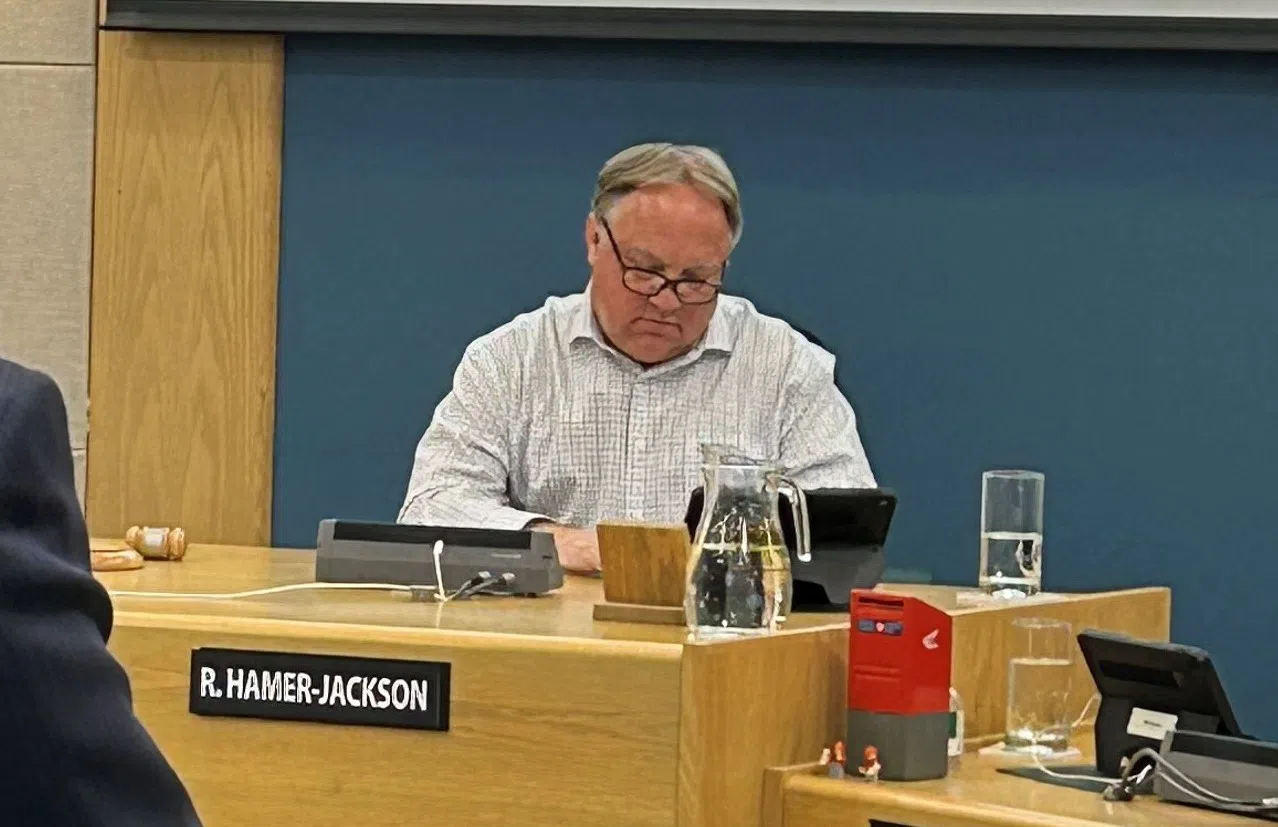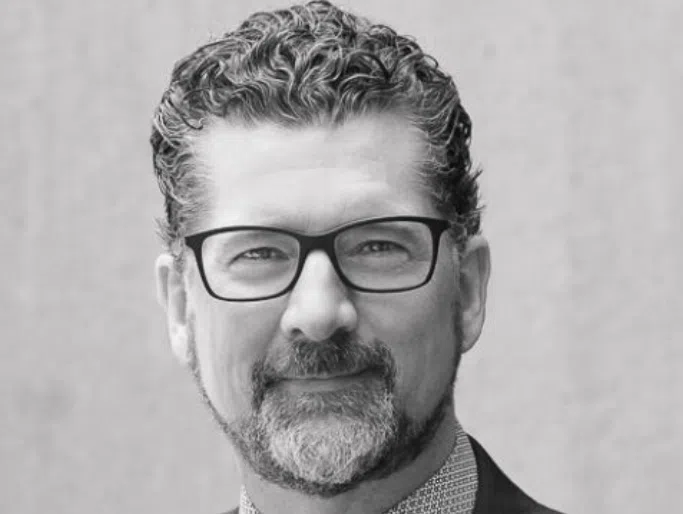
Kamloops Mayor Reid Hamer-Jackson at his council seat as Municipal Advisor Henry Braun delivers his report on May 7, 2024/via Brett Mineer
Kamloops Mayor Reid Hamer-Jackson has decided its “time to fight back.”
The mayor says he intends on filing a series of Code of Conduct complaints in his own capacity as mayor, and on behalf of non-elected officials.
The number of complaints, and whom on council they may be directed at, are not something the mayor is willing to discuss at the moment.
“I don’t want any frivolous ones,” said Hamer-Jackson, who says he does intend to vet the complaints that are being present to him.
Hamer-Jackson argues the Code of Conduct bylaws do allow him to file complaints based on citizens’ concerns.
“There’s ones for me,” said Hamer-Jackson when asked about the specifies of the complaints he intends to file.
“There’s citizens that want to file a Code-of-Conduct complaint,” added Hamer-Jackson. “You have to have a Council member to do that.”
The standing of said complaints, once filed, are likely to run into a legal ‘gray area.’
Kamloops Council voted to quash the public’s ability to file Code-of-Conduct complaints in August of 2023 due to concerns about the cost associated with multiple CoC complaints.
Since the process was initiated 2-years ago, May of 2023, around two dozen Code-of-Conduct complaints have been issued.
This has led to a legal bill for the City of Kamloops of $3.7 million since the start of 2023.
This is well beyond the normal course of what the City of Kamloops would budget each year, which, according to the City’s Director of Corporate Services, Dave Hallinan, would be budgeted in a range of $600,000 to $700,000 a year.
“The City of Kamloops incurs legal costs as a normal and routine aspect of day-to-day business,” said Hallinan, noting that can cover a variety of different areas. “Guidance on insurance claims, procurement contract reviews, review and input on various bylaws and labour relation situations involving both management and unionized employees.”
“In most circumstances, these costs are reactive in nature as it is rare when the corporation initiates legal action; hence forecasting these costs are difficult,” added Hallinan.
He does say the internal dispute between the mayor and council, on top of those opposed to the actions of council, have pushed up legal costs as well.
“Over the past couple of years, the increasing costs related to City-incurred legal expense can be attributed to the introduction of the Council Code of Conduct and of the recent public challenge of the Alternative Approval Process that was executed for the Build Kamloops initiative,” noted Hallinan.
Complaints process long and costly

Profile photo of Reece Harding with Young Anderson Barristers & Solicitors. Harding has handled many of the Code of Conduct investigations in Kamloops/via younganderson.ca
Under the Council Code of Conduct Bylaw, once a complaint is put forward in writing a third-party investigator has to be chosen by the City’s Legal Department, who then firstly reviews whether the complaint is not “frivolous, vexatious, not made in good faith, or not made with respect to a breach of [the] Bylaw,” according to the statutes.
If it’s considered to be without merit, it’s referred back to Council, which can then decide to reject or suspend the complaint based on the recommendation of the investigator or advance the process to the next level.
Those complaints which are deemed worthy of further scrutiny are put into “preliminary assessment,” where the investigator first determines if the issue can be settled through an “informal resolution” process.
The Code of Conduct Bylaw recommends most cases be resolved “informally,” which allows the investigator to make their own ruling, as well as recommendations on the remedies to resolve the complaint.
If the investigator feels it’s unlikely the “informal” approach would provide a resolution, the Code of Conduct complaint is put into “formal resolution” procedures.
“Formal resolution” requires the investigator to conduct interviews, take depositions and produce a detailed report to Council, which is supposed to be submitted within 90 days, though Council can authorize an extra 30-day window for more complex cases.
The “formal” process, while more thorough and exhaustive, is also more costly due to the time required to conclude it.
Once the “formal” probe is done, it then goes before a closed session of Council to vote on whether to accept the results and decide whether to move forward with any subsequent sanctions.







